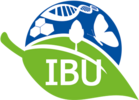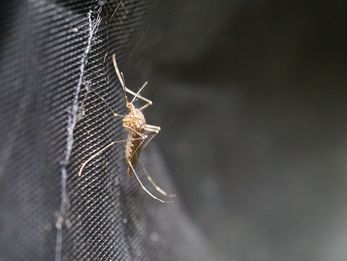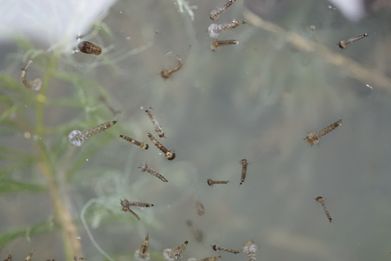Kontakt
AG Leitung
Sekretariat
CuliFo
Verbundprojekt: Stechmücken und Stechmücken-übertragene Zoonosen in Deutschland - AP2: Mikroklima (CuliFo)
Laufzeit: Dezember 2015 - Juli 2019
Finanzierung: Bundesanstalt für Landwirtschaft und Ernährung (BLE)
Beschreibung / Description
During my PhD I will investigate mosquitoes in Germany; in particular the mosquito ecology and the influence of microclimatic conditions of their resting sites. The main objectives of my project are:
(1) to provide site- and habitat-specific temperature indices
(2) to enhance the knowledge on mosquito ecology (e.g. habitat preferences etc.)
(3) to investigate the hibernation of adult mosquitoes
Kurzfassung / Abstract
Mosquitoes are an important vector species of several pathogens. During the second half of the last century, mosquitoes may have played a minor role as carrier of diseases in Germany, but globalization and climate change promote the dispersal of pathogens and invasive mosquito species and reinforce the threat of mosquito borne epidemics. Hence, it is crucial to scrutinize mosquitoes from the view of multiple disciplines for an effective surveillance and control of the vectors.
During my PhD project I want to investigate, among other topics, the resting sites of mosquitoes. Most mosquito species are crepuscular or nocturnal. The majority of their time they spend in resting sites in order to be protected against predators and meterological effects, in particular female mosquitos require such habitats to digest their blood meal for the next egg clutch (gonotrophic cycle). The microclimatic conditions of the resting sites are largely unknown, even though it is known that the surrounding temperature has a strong influence on the ability of mosquitoes transmitting an arbovirus. I want to provide site- and habitat-specific temperature indices to deliver more precise modelling data and improved risk assessment tools.
A further aim is to enhance the knowledge on mosquito ecology. Most mosquito studies in Germany are focused on the occurrence and distribution of invasive species, by far less is known about the mosquito ecology in general (e.g. habitat preferences, ecosystem function, species interaction etc.) – an essential prerequisite to predict species communities with changing environmental and climatic conditions.
In addition, I intend to examine the hibernation of mosquitoes focused on species overwintering as adults. Those species can transmit a virus earlier in the year, what faciliates its establishment in nature. However, the knowledge on mosquito hibernation is, especially in europe, strongly limited.





